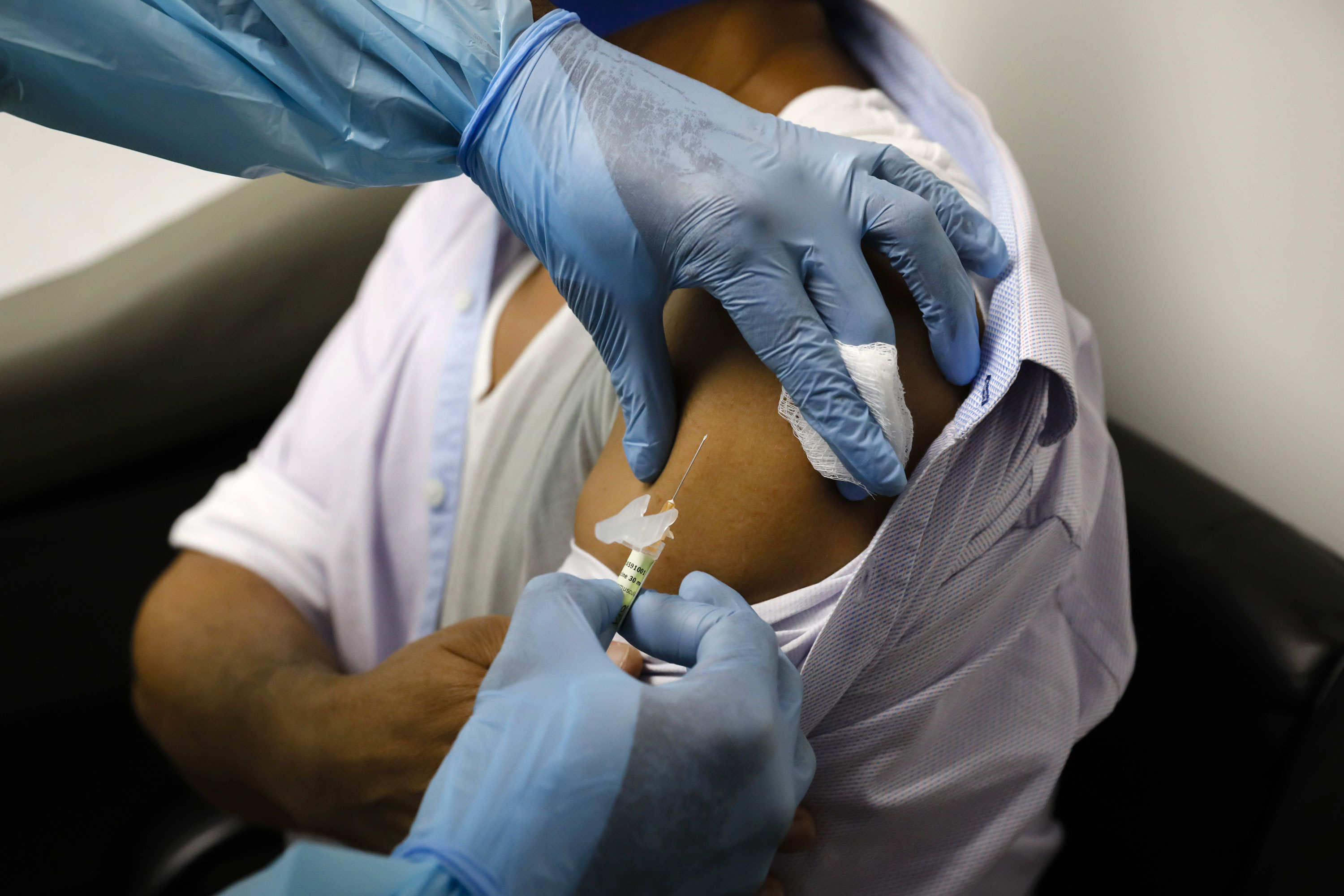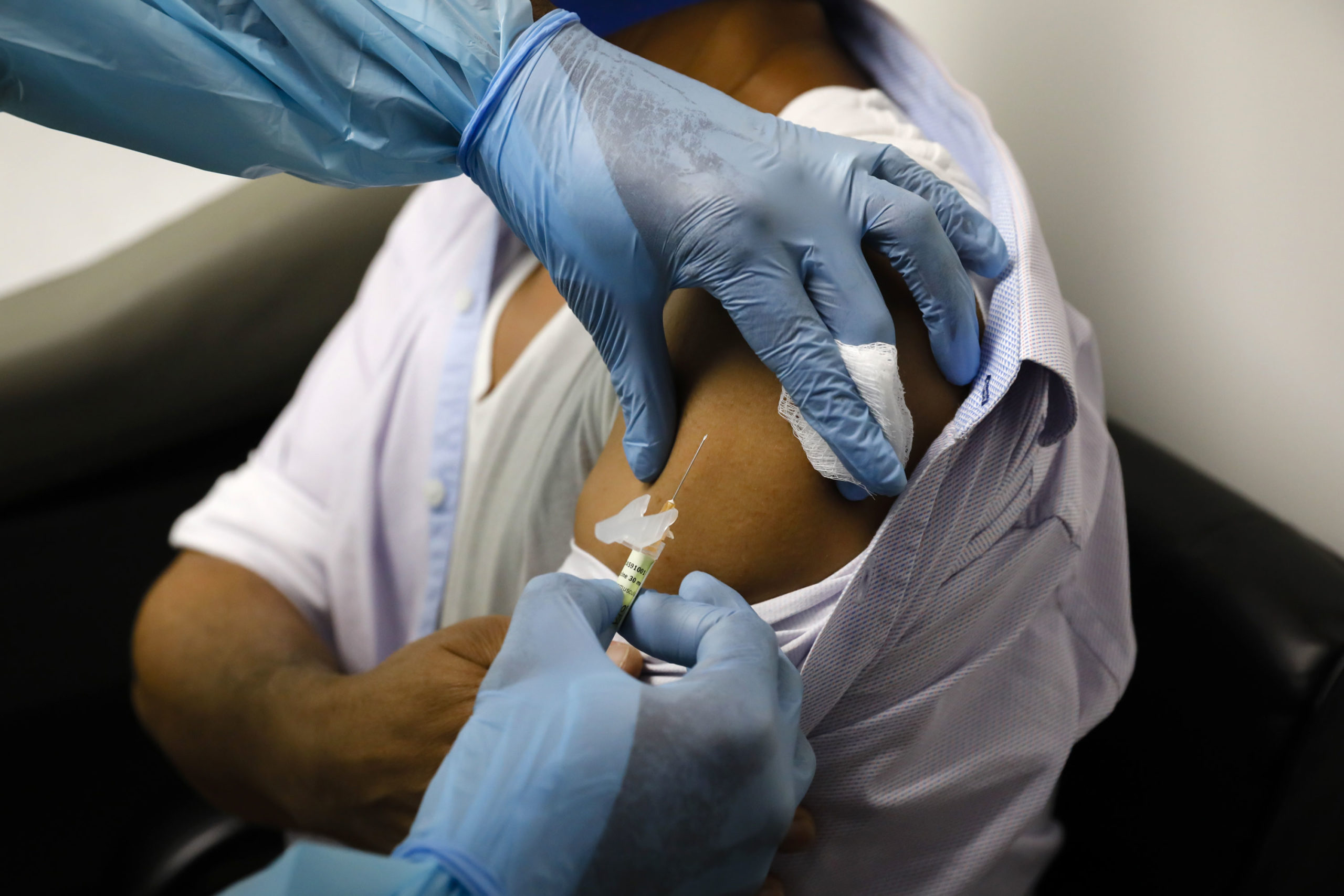
The UK is set to receive its first batch of the Pfizer-BioNTech Covid-19 vaccine in the coming hours, England’s deputy chief medical officer said Thursday.
“We expect to receive [the Pfizer vaccine] very shortly in the UK, and I do mean hours, not days,” Jonathan Van-Tam told the BBC’s Five Live radio show.
On Wednesday, the UK Department of Health said up to 800,000 doses of the vaccine — enough to inoculate 400,000 people — are being made available next week.
Van-Tam also said he believes US and European regulators will approve the Pfizer Covid-19 vaccine in the coming “days or weeks,” during a separate interview with BBC Breakfast.
I don’t expect other regulators, like the US regulators, to be far behind this vaccine. I think this will be solved in the next few days,” Van-Tam said.
His comments come after Dr. Anthony Fauci, the director of the National Institute of Allergy and Infectious Diseases, claimed British health regulators who authorized Pfizer’s Covid-19 vaccine on Wednesday did not scrutinize the trial data as carefully as the US Food and Drug Administration (FDA) is doing in its review.
“The way the FDA is, our FDA is doing it, is the correct way,” Fauci said in an interview on Fox News. “We really scrutinize the data very carefully to guarantee to the American public that this is a safe and efficacious vaccine,” he said.
Van-Tam explained the UK’s vaccination program will prioritize older people in care homes and its workers, and then “everybody aged 80 and over” and “those with risk conditions.”
“There are more vaccines coming, we’ve invested in seven others and they should start coming in by spring,” Van-Tam added.
The lead epidemiologist also told the BBC that pregnant women should not get vaccinated at this point: “We don’t have the data at this point. There may be no problem at all, but safety first.”
As for children, Van-Tam added that they are not a priority at the moment, but that manufacturers are “now thinking of doing trials in children.”
The deputy chief medical officer also urged those in the priority groups to accept the call for vaccination, saying the success of the immunization program and subsequent lifting of restrictions depends on the public’s adherence to the plan.
It’s not my job to give you a magic number because it all depends on how quickly the vaccine is rolled out, whether the people called forward to get the vaccine come forward. If it turns out to be 10%, this vaccine, even if it’s perfect, won’t have any public health effect at a population level,” he added.
As for the duration of the immunity provided by the Pfizer vaccine, Van-Tam said there are still no certainties for “how long it is going to last.”
“We have some data that these vaccines are going to stimulate T cell and antibodies which could be long lasting. But we don’t know how long it will last. I’m confident it will be quite a few months as an absolute minimum,” he added.
Van-Tam said there are still some “challenges in terms of storage conditions” regarding the Pfizer vaccine, which must be stored at minus 70 degrees, but there’s also a limited number of times the vaccine can “transit through ambient air temperature.”
He added he is hopeful that the AstraZeneca-Oxford vaccine, which “should be a whole lot easier and more deployable in multiple NHS [National Health Service] settings,” could be “as easy as the flu vaccine” to handle.
Van-Tam also added he is “hopeful” the AstraZeneca-Oxford vaccine might be ready by Christmas.
You may also like
-
UK coronavirus variant has been reported in 86 countries, WHO says
-
NASA technology can help save whale sharks says Australian marine biologist and ECOCEAN founder, Brad Norman
-
California Twentynine Palms: Explosives are missing from the nation’s largest Marine Corps base and an investigation is underway
-
Trump unhappy with his impeachment attorney’s performance, sources say
-
Lunar New Year 2021: Ushering in the Year of the Ox

